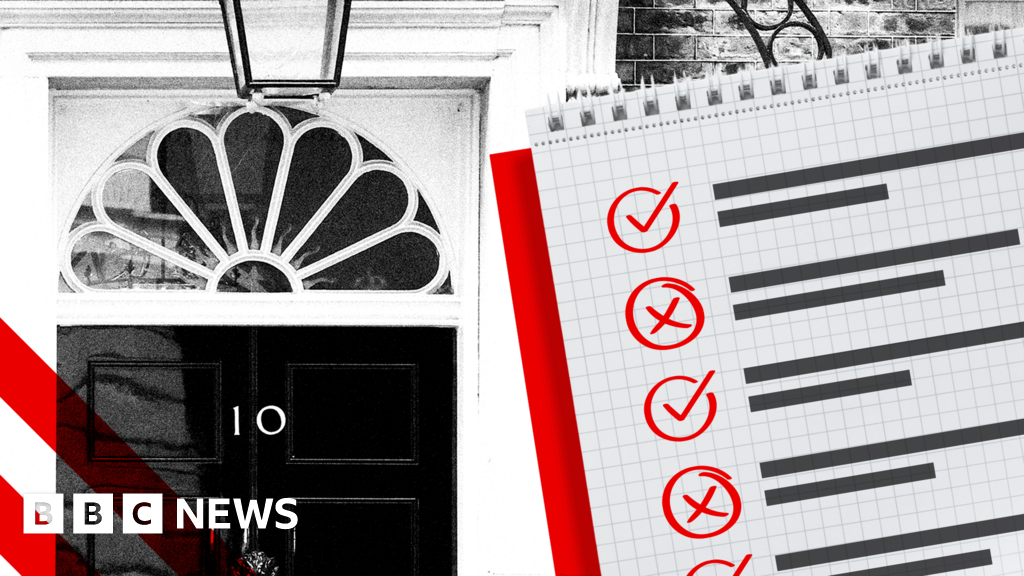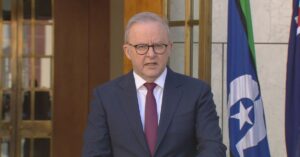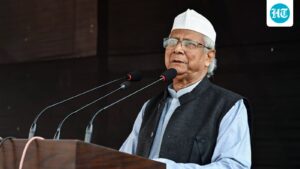
On July 5, 2024, Sir Keir Starmer’s Labour government assumed power with a resounding majority, promising to reshape Britain. One year later, the BBC’s correspondents evaluate the government’s progress across six pivotal policy areas, revealing a complex picture of ambition meeting political reality.
Economic Growth and Challenges
The Labour government pledged to boost economic growth, aiming to put more money in citizens’ pockets. However, the journey has been fraught with challenges. The UK economy stagnated in the latter half of 2024, and the government’s ambition to lead the G7 in growth was tempered by economic realities.
According to Deputy Economics Editor Dharshini David, the economy showed signs of recovery in early 2025, with GDP per capita rising by approximately 0.5% by April. Yet, the increase is modest, and the government’s policies, including a minimum wage hike and increased National Insurance contributions, have impacted business profits and employment.
“There are more than a quarter of a million fewer employees than a year ago; the biggest losses are in hospitality and retail,” notes David, citing data from the Institute of Employment Studies.
Labour’s economic strategy faces additional hurdles from global uncertainties, such as trade tensions and geopolitical risks, complicating their growth objectives.
Immigration and Border Control
Labour’s commitment to reducing net migration and tackling illegal crossings by small boats has seen mixed results. Home Editor Mark Easton reports a significant drop in net migration, primarily due to visa restrictions from the previous government.
Despite efforts to link immigration policies with employment training, challenges persist. The government aims to enforce stricter visa regulations and bolster border security, but small boat crossings have increased, and asylum support numbers have risen.
“The Treasury’s spending plans rely on ending asylum hotel use by 2029, but hotel use has slightly increased,” Easton highlights, underscoring the political and economic stakes.
Labour’s approach includes treating people smuggling akin to terrorism and seeking international cooperation, yet much depends on external factors beyond the UK’s control.
Foreign Relations and Security
Labour promised to strengthen alliances and support Ukraine, with diplomatic correspondent James Landale noting successes and criticisms. Starmer has managed relations with the US, securing a tariff deal and maintaining the AUKUS security pact.
The UK has sustained support for Ukraine and reset diplomatic ties with the EU, easing trade regulations and agreeing on a defence pact. However, critics argue the government is overly cautious, particularly regarding Russia and Middle Eastern policies.
“Critics say changes to UK-EU relations are too modest to significantly boost the economy,” Landale observes, pointing to broader geopolitical challenges.
Labour’s foreign policy, while proactive, faces scrutiny over its effectiveness and the balance between economic interests and security concerns.
Education and Social Reforms
Labour’s education reforms, including recruiting 6,500 new teachers and imposing VAT on private school fees, have sparked debate. Education correspondent Hazel Shearing reports that teacher recruitment targets remain unmet, though VAT on fees has been implemented.
The policy has led to concerns about private school enrollments and the financial viability of smaller institutions. Labour argues the revenue will bolster public education, but the impact remains to be seen.
“The number of private school pupils fell by 11,000 in a year,” Shearing notes, highlighting the contentious nature of the reforms.
In social policy, Labour’s welfare reforms have faced significant U-turns, as Social Affairs Editor Alison Holt reports. Efforts to restrict the Winter Fuel Payment and reform benefits met resistance, leading to policy reversals and questions about the government’s priorities.
The government’s commitment to a National Care Service remains under scrutiny, with the Casey Commission’s findings on social care funding eagerly anticipated.
Healthcare and Structural Changes
Labour’s healthcare agenda, including reducing waiting lists and implementing structural changes, is critical to its broader social reform strategy. Health Editor Hugh Pym and reporter Jim Reed highlight ongoing challenges in meeting these ambitious goals.
While Labour has initiated reforms, the healthcare system’s demands continue to test the government’s ability to deliver on its promises. The balance between immediate needs and long-term structural changes remains a focal point for public and political scrutiny.
As Labour marks its first year in power, the government’s performance across these key areas reflects both achievements and ongoing challenges. The coming years will determine whether Starmer’s administration can fully realize its vision for change amidst complex domestic and international landscapes.






